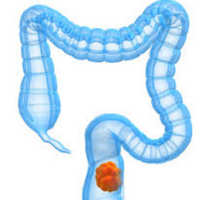 Cancer is a major disease globally, with an estimated 8.2 million deaths in 2012. The third most common cancer, in both genders, is colon cancer and the majority of cases of this disease tend be random and not due to genes inherited from parents. This randomness implies that there are environmental factors which are responsible for this disease and the cDGH is at the forefront of using metabonomics and microbiome analysis to understand what role the gut microbiota play in initiating colorectal cancer (CRC) and maintaining its development.
Cancer is a major disease globally, with an estimated 8.2 million deaths in 2012. The third most common cancer, in both genders, is colon cancer and the majority of cases of this disease tend be random and not due to genes inherited from parents. This randomness implies that there are environmental factors which are responsible for this disease and the cDGH is at the forefront of using metabonomics and microbiome analysis to understand what role the gut microbiota play in initiating colorectal cancer (CRC) and maintaining its development.
Members of the centre are investigating what role specific members of the human microbiome play in CRC initiation. In 2011 we were able to identify that a common member of the oral microbiome becomes enriched on tumours in the gut. This observation was surprising considering that these bacteria are not commonly found in the large intestine and we are establishing whether they are a cause of the cancer or a consequence.
Additionally other members are developing mass spectrometric driven methods to help surgeons decide what tissues are malignant and which are normal, in order to make better clinical decisions during surgery. The iKnife, developed by Dr Zoltan Takats is being implemented by surgical members of the centre in day to day surgery and provides a concrete example of the translationary aspects of some of the research in the centre.
In this section